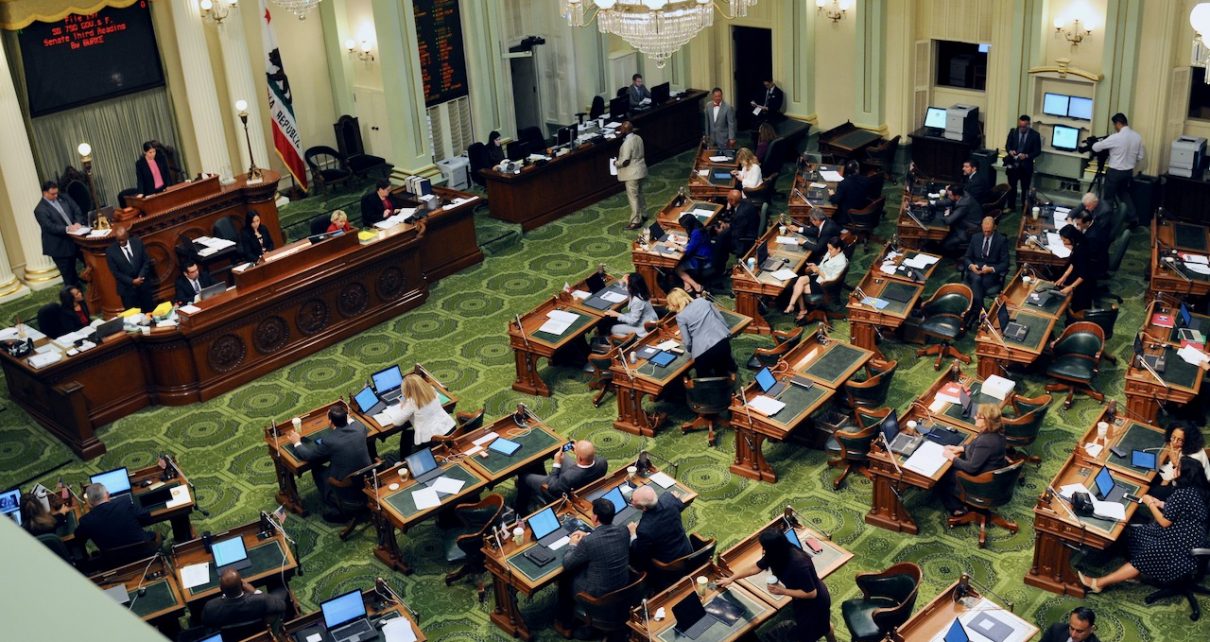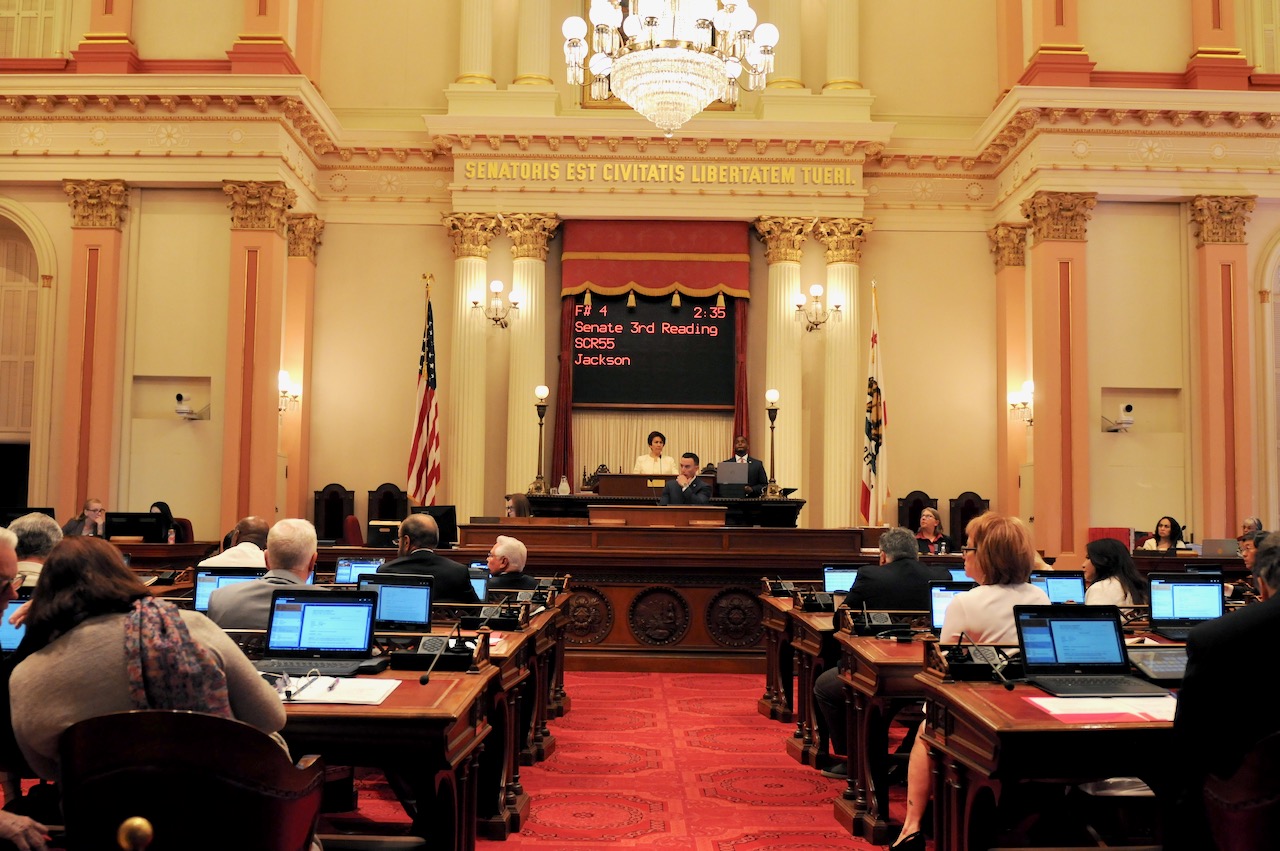
California State Assembly Chamber. (Photo: Kevin Sanders for California Globe)
Another Pitch for Reducing Bill Introductions in the California Legislature
Supporters believe introduction limits help reduce the number of bills entering the legislative process
By Chris Micheli, September 20, 2024 1:00 pm
Interestingly, only about a quarter of this country’s legislatures, including California, limits the number of bill introductions by their elected legislative officials. Of course, most state legislatures operate on a part-time basis. According to data from the National Conference of State Legislatures (NCSL), tens of thousands of bills are introduced annually in state legislatures in the United States. California accounts for roughly 2,500 of those bills each year.
So, why are elected legislators limited in the number of bill introductions in a handful of states? According to NCSL, “Supporters believe introduction limits help reduce the number of bills entering the legislative process and allow more time to process substantive legislation. Others disagree and say these limits restrict members’ rights to propose bills and carry out their legislative responsibilities.”
One of the first state legislatures to limit bill introductions was North Dakota, which imposed their bill limits in the 1940s. Thirty years later, Colorado and Indiana imposed bill limits, and Florida, Nevada, and Tennessee imposed limits during the 1980s. Limits started in Arizona, California, Louisiana, and Wyoming in the 1990s.
And, some state legislatures decided that bill introduction limits do not work for them. For example, Hawaii, Michigan, New Jersey, and Washington did impose bill limits, but later repealed their limits.
Current rules of the California Legislature impose the following limits in their two houses:
Assembly – Limitation on the Introduction of Bills
Rule 49. (a) A Member may introduce not more than 50 bills in the regular session. As used in this rule, “bill” includes a constitutional amendment, but does not include a concurrent or joint resolution.
(b) This rule may be suspended with respect to a particular bill by approval of the Committee on Rules.
Senate – Bill Introduction Limitation
Rule 22.5.(a) A Member of the Senate may introduce or subsequently author not more than 40 bills in the regular session.
(b) This rule may be suspended with respect to a particular bill by approval of the Committee on Rules.
(c) This rule does not apply to a constitutional amendment, any type of resolution, or a bill introduced by a committee.
In almost all states, the bill limits are set by internal rules of the legislative houses. However, in Louisiana, the state constitution establishes their restriction. For comparison purposes, the following are some of the existing bill limits in other state legislatures:
Arizona – 7
Colorado – 5
Florida – 6
Indiana – 10
Louisiana – 5
Montana – 7
North Carolina – 15
North Dakota – 15
Oklahoma – 8
Tennessee – 15
Virginia – 15
Wyoming – 5
From the 2023-24 California Legislative Session, the average number of bills introduced per Assembly Member was 39 (with a cap of 50), while the average number of bills introduced per Senator was 35 (with a cap of 40). Based upon these most recent statistics, it would appear to be a nominal impact to reduce the Assembly bill limit from 50 to 40, and the Senate bill limit from 40 to 35. However, lowering the two houses’ bill limits to 30 bills per 2-year session would definitely represent a significant reduction in bill load.
- Service of Summons in California Civil Actions - December 11, 2024
- Sunset Clause Versus Repeal Clause - December 10, 2024
- Describing a Spot Bill - December 9, 2024




